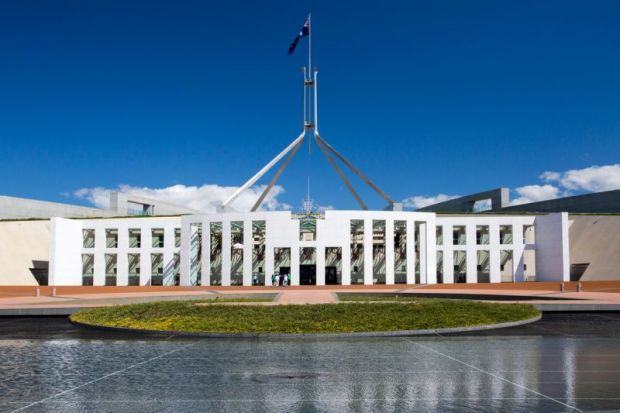The Australian government’s reforms to rein in its mounting student debt bill could pass parliament on 28 March, with the Senate set to vote on the proposal.
The bill, if approved, would cut the repayment threshold at which former students must start repaying their debts from the current A$55,874 (£30,300) to A$45,000.
But in a sign of the struggle that the coalition faces in forcing the measure through, one minor party wants the new threshold raised to A$50,000, while another wants it cut to A$30,000.
The government needs the support of nine of the 11 minor party and independent senators to pass the proposal, which is bitterly opposed by the Labor opposition and the Greens.
Pauline Hanson’s One Nation, which is scheduled to move the amendment seeking a A$30,000 repayment threshold, controls three seats. Derryn Hinch’s Justice Party, which advocates a A$50,000 threshold, has one.
Another two senators belong to the Nick Xenophon Team. NXT is assumed to support the bill after its lower house MP Rebekha Sharkie voted in favour of it on 27 March.
Search our global database for jobs in Australia and New Zealand
Ms Sharkie backed the bill after the government watered down a proposal to impose lifetime limits on student borrowing. Instead, the bill now mandates maximum debt balances that students must remain under – by paying off some of their accumulated debt, if necessary – before they can borrow more.
The balance limits are a relatively high A$104,440 for students in most disciplines, and A$150,000 for those studying medicine, dentistry or veterinary science. But Australia’s National Union of Students said that these caps were lower than the fees charged for some stand-alone postgraduate courses.
“The government will be forcing students to take up dodgy private loans or pay up front for a postgraduate qualification, irrespective [of whether] a lifetime or debt cap is imposed,” said NUS national president Mark Pace.
It is not clear whether the Senate will have time to vote on the measure, with debates scheduled first on amendments to eight other bills.
If the proposal does not pass parliament today, the next opportunity to consider it will be on 8 May.
Register to continue
Why register?
- Registration is free and only takes a moment
- Once registered, you can read 3 articles a month
- Sign up for our newsletter
Subscribe
Or subscribe for unlimited access to:
- Unlimited access to news, views, insights & reviews
- Digital editions
- Digital access to THE’s university and college rankings analysis
Already registered or a current subscriber?







